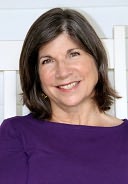- Shopping Bag ( 0 items )
From Barnes & Noble
Pulitzer Prize-winning journalist Anna Quindlen has the rare ability to deliver life wisdom without being preachy or pedantic. Her bestselling books like Being Perfect, Loud and Clear, and A Short Guide to a Happy Life possess the qualities that she ascribes to real friends: They offer both hard truths and soft landings. Lots of Candles, Plenty of Cake acknowledges the unavoidable realities of aging and the complexities of parenting and other relationships, but it doesn't wallow; in fact, Quindlen seems to have achieved a mellowness exemplified by her book's apt title. A Barnes & Noble Bestseller, now in trade paperback and NOOK Book.





Overview
“[Quindlen] serves up generous portions of her wise, commonsensical, irresistibly quotable take on life. . . . What Nora Ephron does for body image and Anne Lamott for spiritual neuroses, Quindlen achieves on the home front.”—NPR
In this irresistible memoir, Anna Quindlen writes about a woman’s life, from childhood memories to ...